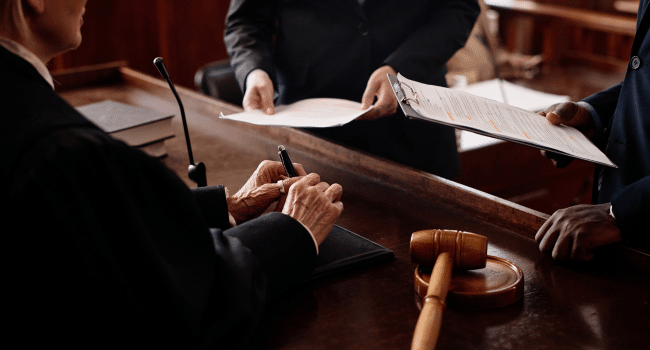Table of Contents
Few things send a chill through a lawyer’s spine like the words, “You’re under investigation by the State Bar.” Whether the complaint came from a disgruntled client, opposing counsel, or arose from a simple miscommunication that spiraled, it’s a moment that demands serious attention—and fast.
But here’s a reality that doesn’t get talked about enough: a Bar complaint isn’t an automatic finding of wrongdoing. It’s the beginning of a process. A process that, with the right steps, mindset, and strategy, can be navigated with professionalism and dignity intact. Here’s more about defending against Bar complaints in Florida.
Understanding the Scope: What Actually Triggers a Complaint?
Bar complaints cover a wide spectrum, and not all are created equal. Some are rooted in major ethical breaches; others stem from client dissatisfaction that doesn’t cross into misconduct. Either way, the licensing board is required to take each complaint seriously.
Some of the most common allegations include:
- Violation of confidentiality
- Conflict of interest
- Poor communication or neglect
- Withholding of documents or funds
- Failure to return calls or keep clients informed
- Unauthorized billing or failing to deliver promised services
- Improper conduct in court or with opposing counsel
- Involvement in criminal activity
- Trust account mismanagement
That last one? It’s a big one. Trust accounting rules are among the most tightly enforced ethics standards—and mistakes, even unintentional ones, can raise serious red flags.
Step One: Don’t Panic, But Don’t Delay
Emotions will spike—confusion, anger, frustration—but this is the moment to lead with calm and clarity. The first priority is to carefully review the contents of the complaint. What exactly is being alleged? Are specific rules or incidents mentioned? Is the complaint vague or detailed?
Next comes the response window. Most jurisdictions give a specific timeframe to formally respond—often 20 to 30 days. This deadline is not flexible. Missing it can escalate matters quickly, even if the complaint itself lacks merit.
This is not the time for instinctive replies or overly defensive tones. The goal is to offer a response that is factual, respectful, and aligned with ethical standards. Think “measured professionalism,” not “emotional rebuttal.”
The Power of Documentation and Detail
A well-structured response includes more than just a written denial. It should be backed with supporting records—client communication logs, signed fee agreements, billing records, email correspondence, case timelines, and any evidence that provides clarity.
If the complaint alleges poor communication, show the thread of calls and messages. If the claim involves withheld funds, include trust account statements. If the issue revolves around the outcome of a case, emphasize the professional effort and diligence involved—keeping the focus on facts, not feelings.
The disciplinary board isn’t looking for drama—they’re looking for documentation. Clear, organized records often carry more weight than any argument.
Cooperation Counts—But So Does Legal Counsel
Yes, the process requires cooperation. But cooperation doesn’t mean going in alone. Retaining experienced ethics counsel is a strategic move, not an admission of guilt. These professionals specialize in Bar defense and understand both the spoken and unspoken rules of the process.
They can help draft the official response, ensure compliance with timelines, and, perhaps most importantly, offer perspective. What may feel like a career-ending accusation might, in reality, be resolved with a cautionary letter or procedural clarification—especially when addressed properly.
They’ll also help identify whether the issue might trigger additional consequences, such as malpractice claims or criminal implications, and prepare accordingly.
The Spectrum of Outcomes
Not every complaint results in formal discipline. In fact, many are dismissed after preliminary review. Others might lead to:
- Informal admonitions or warnings
- Private reprimands
- Mandatory ethics training or monitoring
- Public discipline (e.g., suspension)
- Disbarment in severe cases
Outcomes depend heavily on the seriousness of the allegations, the attorney’s prior disciplinary history, and the thoroughness of the response. If a complaint highlights minor violations or procedural missteps, showing accountability and a willingness to improve can go a long way.
Even in cases where some fault is found, how the attorney conducts themselves during the investigation can influence the Board’s final decision. Transparency, respect, and proactive compliance are viewed far more favorably than denial or stonewalling.
What About False or Retaliatory Complaints?
They happen. Sometimes, a client loses a case and looks for someone to blame. Sometimes, opposing counsel isn’t thrilled with how aggressive the representation was. And yes, occasionally, complaints are filed as leverage in unrelated disputes.
The good news? Licensing boards are generally adept at spotting baseless or retaliatory complaints—especially when the response is thorough, consistent, and professional. A well-documented file often tells the real story.
Still, even if the complaint lacks merit, it’s essential to respond as though it were serious. Every complaint is a chance for review, and the stakes—your reputation and license—are too high for shortcuts.
Prevention Going Forward: Lessons Worth Learning
One of the silver linings of any complaint is the opportunity to strengthen future practices. Common improvements include:
- Implementing better communication protocols with clients
- Double-checking trust accounting procedures
- Creating detailed intake forms and case update logs
- Setting clearer expectations around billing and scope of services
- Documenting all client interactions—even informal ones
Even attorneys who ultimately aren’t disciplined often walk away with sharper systems and better boundaries. In this way, the complaint becomes a pivot point—not a professional downfall.
Final Thought: Your License Deserves a Thoughtful Defense
No one wants to face a Bar complaint. It’s personal, it’s public, and it can feel like the entire weight of one’s career is under review. But handled wisely, it doesn’t have to be a disaster. It can be a challenge met with calm, a moment navigated with support, and a chapter closed with dignity.
Because in a profession built on advocacy and precision, the best defense is always a well-prepared one. And when the time comes to defend the story behind the practice, that defense deserves just as much care as any client’s case.
